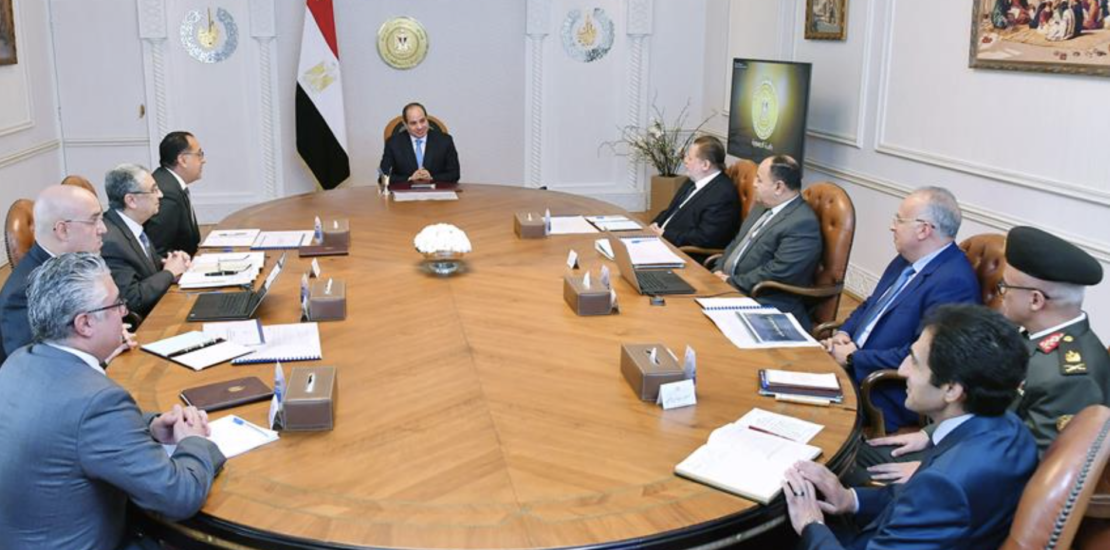- November 14, 2022
- Posted by: Ahmed Abdelatif
- Category: 2022, EN, Green

Egyptian President Abdel-Fattah El-Sisi called on Sunday for ramping up efforts to turn the Suez Canal Economic Zone (SCZone) into a ‘leading and attractive’ region for clean energy production.

In a meeting with government officials held to discuss ongoing projects in the SCZone, the president issued instructions to capitalise on the strategic location of the Suez Canal to attract foreign investments in clean energy, according to a statement by presidential spokesman Bassam Rady.
President El-Sisi gave directives to focus the strategy for projects in the SCZone on investments aimed at localising technology and providing the industrial capacity and job opportunities.
The meeting also tackled the map of investments in the zone and reviewed efforts to localise new and renewable energy projects and green fuels, particularly green hydrogen and green ammonia projects.
These projects are set to be implemented in cooperation with foreign partners, which is one of the results of the COP27 global climate summit.
During a roundtable held on Tuesday at COP27, El-Sisi announced the launch of the first phase of an Egyptian-Norwegian project to establish a major green hydrogen plant with a capacity to produce 100 MW in Egypt’s Ain Sokhna on the Red Sea.
The launch of the Egyptian-Norwegian project is part of the country’s national strategy for green hydrogen production aimed to produce green hydrogen at the cheapest price worldwide.
In addition, Egypt has recently signed numerous memoranda of understanding on hydrogen and green ammonia production with international partners as part of the country’s efforts to attract foreign investments into green hydrogen production in order to become a transit route for clean energy to Europe.
The strategy of green hydrogen production seeks to help Egypt contribute 8 percent of the global hydrogen market, according to a previous cabinet statement.
The strategy will increase Egypt’s GDP by $10-18 billion by 2025, create more than 100,000 job opportunities, and contribute to decreasing Egypt’s import of petroleum products and therefore reduce emissions, the government has said.
